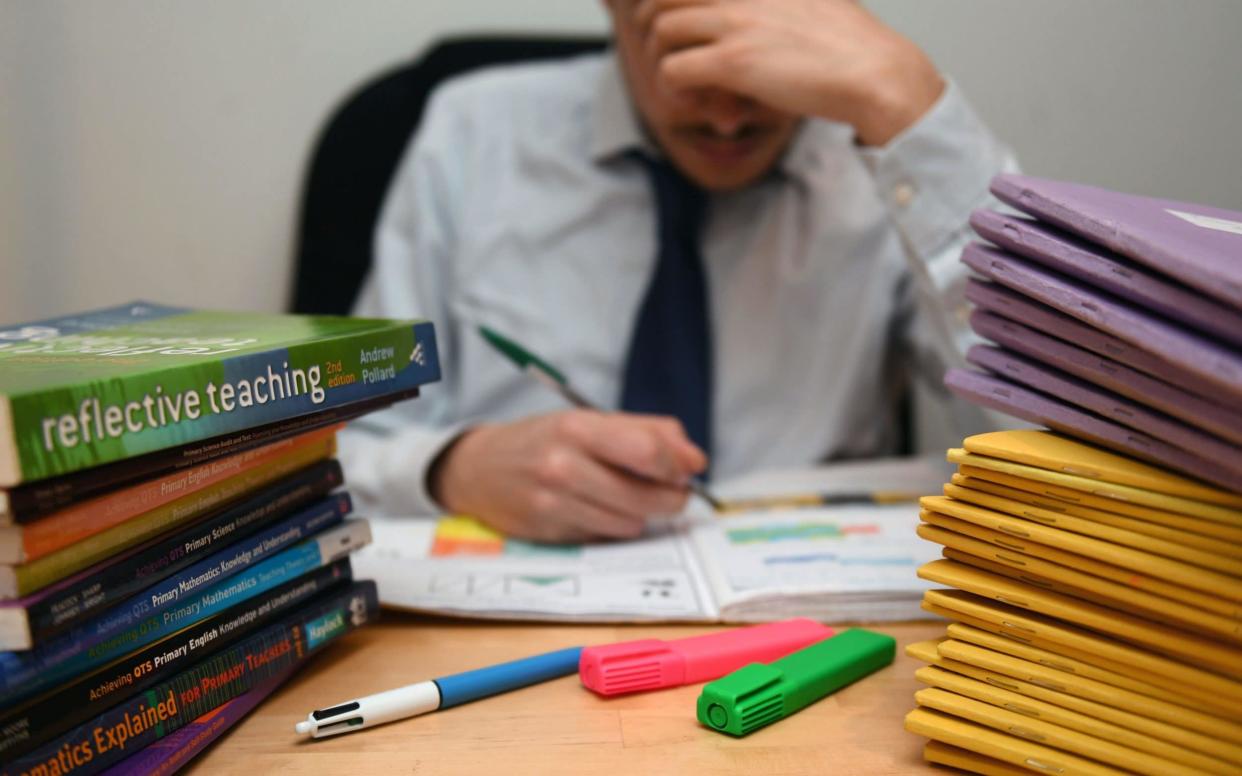Teachers’ working hours have not changed for 25 years, major new study finds

Teachers’ working hours have not changed for 25 years, a major new study has found.
It is a “myth” that teachers are now working longer hours than they did in the past, according to one of the lead researchers on a new academic paper published today.
Academics at University College London (UCL) analysed data from the Office for National Statistics’ Labour Force Survey from 1992 to 2017, and found that teachers’ working hours have remained “relatively stable” at 46 to 48 hours a week.
The data also revealed that the proportion of teachers who report that they “usually” work evenings and weekends has also been broadly stable since 2005.
The report, funded by the Nuffield Foundation, said that “contrary to current narratives” there is “no evidence” that working hours have increased over time.
“Indeed, we find no notable change in total hours worked over the last twenty years, no notable change in the incidence of work during evenings and weekends over a fifteen year period and no notable change in time spent on specific tasks over the last five years,” the UCL report said.
Prof John Jerrim, one of the report's authors from UCL’s Institute of Education, said: “In some respects it’s a bit of a myth that teachers now work longer hours than they used to.”
He explained that surveys commissioned by the Department for Education (DfE) on workload tend to be answered by only a small sample of teachers, and as such can paint a misleading picture.
Teaching unions have blamed an excessive workload for low morale among teachers, leading to issues in recruitment and retention.
Chris McGovern, chair of the Campaign for Real Education and a former Government advisor, said that the focus on workload has become a “distraction”.
He added: “Teachers end up being used as porns in a political war, they are being encouraged to think they are over worked.
“They are being weaponised to fight a campaign against the Government, and encouraged to have a sense of grievance.
The report found that teachers in England do work eight longer hours per week longer than their counterparts in other developed countries.
While the average full-time secondary teacher in England worked 49 hours per week last year, the Organisation for Economic Co-Operation and Development (OECD) average was 41 hours. The equivalent figure for teachers in Finland was just 34 hours.
Kevin Courtney, joint general secretary of the National Education Union, said: “Government must face the fact that it is the culture of excessive accountability, brought on by the Department for Education and Ofsted, which acts as the main driver of workload.
“Nor is it fair on children that teachers are so exhausted outside of contact-time with paperwork that so rarely benefits pupils. “For so long as these skewed priorities continue, schools will be in the grip of a culture of fear, over-regulation, and a lack of trust. “
A DfE spokesperson said: “We have been making concerted efforts to reduce workload driven by unnecessary tasks.
“And we will continue our work with the sector to drive down on these burdensome tasks outside the classroom so that teachers are free to do what they do best – teach.”

 Yahoo News
Yahoo News 
